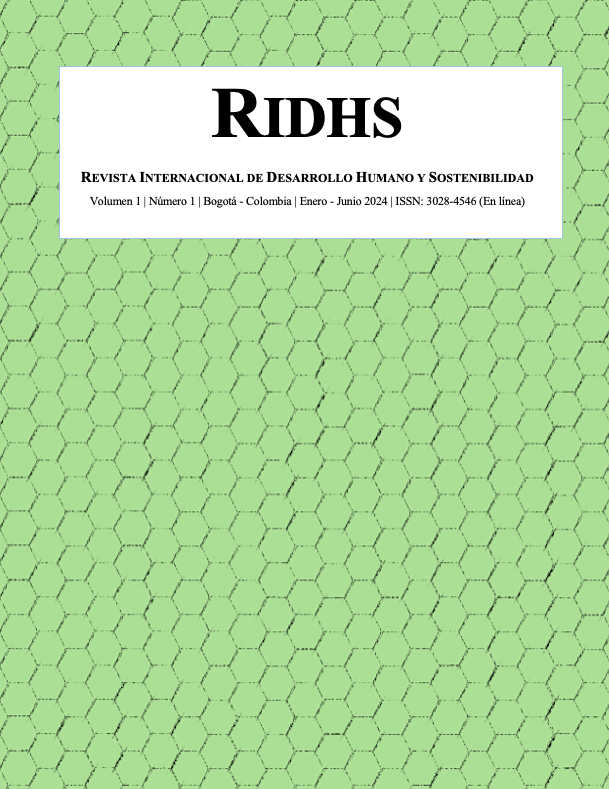Ethics and Artificial Intelligence
DOI:
https://doi.org/10.51660/ridhs11202Keywords:
artificial intelligence, fairness, accountability, transparency, privacy, autonomyAbstract
Artificial Intelligence (AI) has emerged as a disruptive technology with the potential to transform multiple aspects of society. However, its development and application pose significant ethical challenges. This article examines the ethical pillars that could guide AI research, development, and implementation. These pillars include fairness, accountability, transparency, privacy, and autonomy. It discusses the importance of each pillar in the context of AI and proposes recommendations for integrating these principles into technological practice and policymaking. These principles not only address current ethical challenges, but also provide guidance for future innovations, ensuring that AI is deployed in ways that promote well-being and respect human dignity. As AI continues to evolve, adherence to these pillars will be essential to building an ethical and equitable technological future.
Downloads
References
Acquisti, A., Brandimarte, L., & Loewenstein, G. (2015). Privacy and human behavior in the age of information. Science, 347(6221), 509-514.
Aparicio-Gómez, Oscar-Yecid, Aparicio-Gómez, Carlos Alfonso., & von Feigenblatt, Otto Federico (2024). Tejiendo conexiones: la simbiosis transformadora entre aprendizaje e Inteligencia Artificial. Hachetetepé. Revista científica De Educación Y Comunicación, (28), 1-11. https://doi.org/10.25267/Hachetetepe.2024.i28.1103
Aparicio-Gómez, Oscar-Yecid, Aparicio-Gómez, William-Oswaldo (2024). Homo technicus: From techné to Artificial Intelligence. von Feigenblatt, Otto., Aparicio-Gómez, Oscar-Yecid (Eds.) (2024). Artificial Intelligence and Education: An Ongoing Dialogue (pp. 97-119). Barcelona: Octaedro. ISBN: 978-84-10282-04-9.
Brundage, M., Klein, J., & Wang, M. (2020). The malicious use of artificial intelligence: Forecasting, prevention, and mitigation. Artificial Intelligence, 328.
Calo, R. (2015). Against autonomy: Why self-driving cars, and other autonomous machines, are bad ideas. Columbia Law Review, 114(4), 993-1062.
Castelvecchi, V. (2016). Making AI explainable: Efforts to demystify machine learning and make it more transparent. Nature News, 538(7623), 435.
Doshi, V., Whittaker, C., & Tambe, P. (2020). Auditing AI: A framework for enabling the responsible use of artificial intelligence. Proceedings of the ACM on Human-Computer Interaction, 4(CSCW1), 1-18.
Floridi, L. (2013). The ethics of information. MIT Press.
Gebhardt, M., Wadler, S., & Berk, A. (2020). Bias and fairness in artificial intelligence. Proceedings of the AAAI Conference on Artificial Intelligence, 34(01), 745-752.
Johnson, D. D. (2016). Pervasive artificial intelligence: Should we fear or welcome it? In The ethics of artificial intelligence (pp. 246-263). Cambridge University Press.
Lipton, Z. C. (2018). The flip side of learning: A survey of algorithmic biases. Communications of the ACM, 61(7), 38-47.
Mittelstadt, B., Allo, P., Taddeo, M., Wachter, S., & Floridi, L. (2019). The ethics of artificial intelligence. Nature, 561(7723), 388-392.
O'Neill, S. (2017). Weapons of math destruction: How big data increases inequality and threatens democracy. Crown Publishing.
Pasquale, F., & Goertzel, B. (2020). The black box problem and artificial intelligence. Artificial Intelligence and Society, 56, 1-9.
Sandvig, E., & Wachter, S. (2019). Auditing algorithms: Beyond explanation. Science, 365(6453).
Solove, D. J. (2008). Understanding privacy. Harvard University Press.
Toft, M. B. (2018). Algorithmic fairness and the limits of human-centered design. Ethics and Information Technology, 20(2), 223-239.
Verma, S., & Doshi-Velez, F. (2019). Fairness and causality in predictive modeling. Proceedings of the AAAI Conference on Artificial Intelligence, 33(1), 1992-1999.
Zuboff, S. (2019). The age of surveillance capitalism: The fight for the future of our privacy. PublicAffairs.
Downloads
Published
Issue
Section
License
Copyright (c) 2024 International Journal of Human Development and Sustainability

This work is licensed under a Creative Commons Attribution-NonCommercial-ShareAlike 4.0 International License.
Articles are published under the terms of a licence that permits use, distribution and reproduction in any medium, provided that the original work is properly cited. Ed&TIC retains the proprietary rights to the published works and actively promotes the reuse of these works under the terms of the aforementioned licence, which encourages the dissemination of knowledge and collaboration in the academic community.


